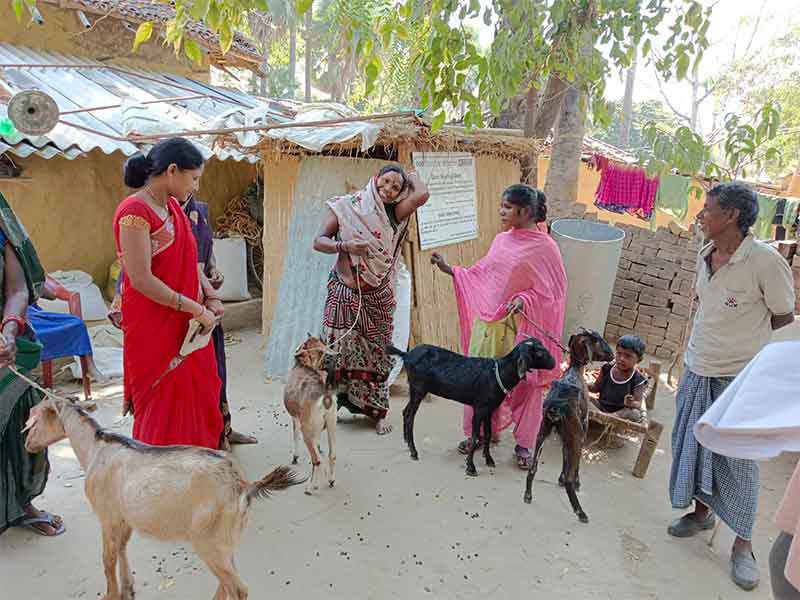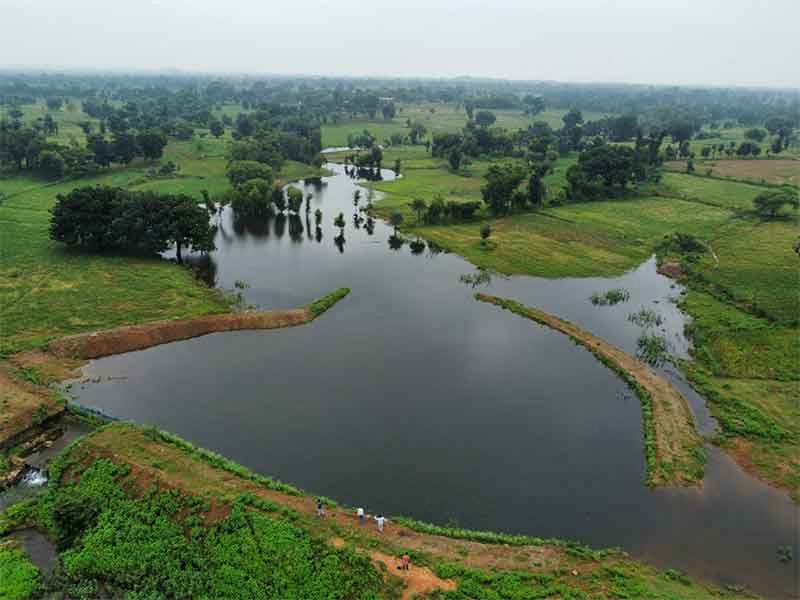
Gehlaur panchayat with its several hamlets, located in Gaya district of Bihar, came into limelight following the success of its famous ‘mountain man’ Dashrath Manjhi in carving out a path in the middle of mountains. After his death a memorial and gates were created by the government in his memory. An annual event is organized on his death anniversary. His son lives in a new settlement on land allotted to Dashrath by the government. More recently, the SBI Foundation has taken up many-sided development activities in the village that have been widely appreciated by all sections including the village panchayat mukhiya (elected head person), school teachers as well as common people including those from the poorest sections.
Despite all these well-intentioned efforts, however, this bitter reality must still be faced honestly and frankly that a significant section of the village population is still extremely poor and if men from here do not go regularly to toil in exploitative conditions in brick kilns in distant places, they are likely to face acute hunger. As things are, even the earnings from this migrant labor do not save them entirely from hunger and in the context of housing, the condition of some of them may be getting more insecure and precarious. This is stated here to draw attention to the urgency of wider and deeper work to reduce the poverty and various related problems of people, including threat of displacement faced by some of them.
Recently this writer visited three settlements of manjhis, who are among the poorest people in the village. In all the three hamlets I met several people who introduced themselves as close relatives of Dashrath Manjhi.
Among these hamlets Manjhi Tola is of special significance as Dashrath Manjhi used to live here during his earlier years (when he was toiling in mountains to create the path) and it was after he achieved fame that he got the new land to which he shifted with his son.
People of this colony told me that their housing condition has become precarious and insecure. On some portions of the colony the forest department threatens them to leave. On another portion the descendants of previous landowners threaten them to leave and collect money from them.
There is very serious shortage of water in the first six months of the year which worsens as the summer advances. Only one hand pump was meeting the needs of 80 households, people said. On top of all this, people here (and in some other hamlets) have been sent accumulated electricity bills which can be as high as around Rs. 30,000 to Rs. 80,000.

Here as in Gandhinagar colony hunger is never too far away, and benefits of government schemes have reached only a few. There is threat of displacement due to road and highway widening, and some of the poor households say that they may not possess all the papers that may be demanded for rehabilitation. Hence there is urgency of providing residential land security to all families. In both these colonies the drinking water problem is acute.
The third hamlet I visited is called Pokharpuraini and is a little away from the main route. As in the previous two colonies, the drinking water problem here is really acute and women can be seen walking a long distance to fetch water from a source that too is not a certain and definite source. A woman said I could not have a bath for several days due to water scarcity. Another woman said that we have to fetch water even for our goats. Here as well as in the other two hamlets people depend on exploitative migrant labor for survival. The migrant workers due to their poverty take an advance from the contractor or middleman at the time of leaving for distant places, and then they they have to toil in very difficult conditions just to clear their advance, so that when they return to their villages they have only meager earnings and cash to show for all their hard work.
When I was visiting these hamlets and also meeting those families who are in close relationship to Dashrath Manjhi’s family, I found that these families too are very poor. I also learnt that the condition of other dalit communities, for example the Ravidasi community living very close to Manjhi Tola, is almost equally difficult.
Subscribe to Our Newsletter
Get the latest CounterCurrents updates delivered straight to your inbox.
Keeping in view this reality of a significant number of people there is need for much more help to reach them. It is true that a lot of highly deserved respect has been showered on Dashrath Manjhi by the government and by others and this is really good, but keeping in view his ideas and his deep concern for the welfare of people, the most proper homage for Dashrath Manjhi would be to take adequate and good care of the poorest communities in his village and nearby areas and resolve their problems in a satisfactory way as early as possible.
Bharat Dogra is Honorary Convener, Campaign to Save Earth Now. His recent books include Protecting Earth for Children, Planet in Peril, Man over Machine and A Day in 2071.













































